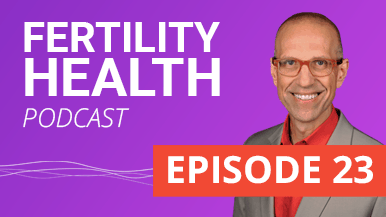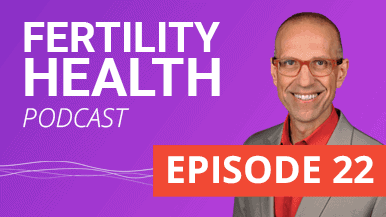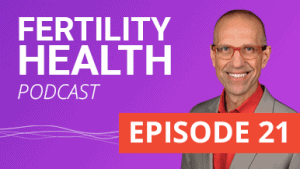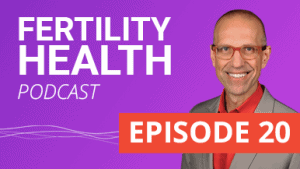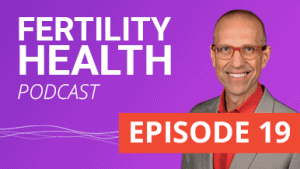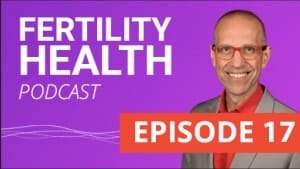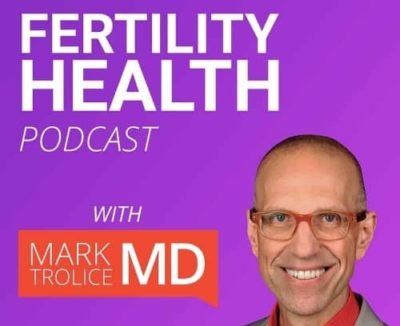 The journey to start or expand a family for aspiring mothers or couples can be long, arduous, and filled with emotional highs and lows. On their way to fertility, patients need to make many decisions such as which treatment option to pursue, whether or not to continue treatments, and whether it is a good idea to keep spending money on procedures not covered by insurance.
The journey to start or expand a family for aspiring mothers or couples can be long, arduous, and filled with emotional highs and lows. On their way to fertility, patients need to make many decisions such as which treatment option to pursue, whether or not to continue treatments, and whether it is a good idea to keep spending money on procedures not covered by insurance.
Throughout this journey the quality of the patient-doctor relationship is vital. If the doctor-patient foundation is solid, patient satisfaction, empowerment, and success are more often attainable.
In this episode, Jody L. Madeira, J.D., Ph.D., Professor of Law at Indiana University Maurer School of Law, joins host Mark P. Trolice, M.D., to define what makes a fruitful and rewarding doctor-patient relationship and what patients can do to maximize their chances of achieving it.
Tune in to discover:
- What constitutes a productive doctor-patient relationship
- The role of emotion in determining the course of treatment
- How desperation may be a motivating factor in spurring infertility patients to action
- Potential sources of infertility patient exploitation
- How multimedia informed consent is enhancing patient education and empowerment
About Jody L. Madeira, J.D., Ph.D.
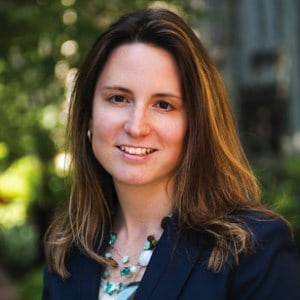 Dr. Jody Madeira is Professor of Law, Louis F. Niezer Faculty Fellow, and Co-Director of the Center for Law, Society & Culture at the Indiana University Maurer School of Law. Her research addresses the intersection of law, society, and emotion in family law, criminal law, law and medicine, and the Second Amendment.
Dr. Jody Madeira is Professor of Law, Louis F. Niezer Faculty Fellow, and Co-Director of the Center for Law, Society & Culture at the Indiana University Maurer School of Law. Her research addresses the intersection of law, society, and emotion in family law, criminal law, law and medicine, and the Second Amendment.
She is the author of over 40 article and book chapters as well as two books: Killing McVeigh: The Death Penalty and the Myth of Closure (NYU Press, 2012) and Taking Baby Steps: How Patients and Fertility Clinics Collaborate in Conception (U. California Press, 2018). Madeira’s background in reproductive medicine and sexuality began when she underwent IVF in 2007 (conceiving triplets) and was intrigued by cultural stereotypes of individuals undergoing fertility treatment that implied that they could not make informed treatment decisions.
To investigate how emotions impacted fertility treatment decision making and doctor-patient relationships, Madeira undertook a comprehensive mixed methods investigation that involved interviewing 130 male and female patients, obtaining online surveys from 267 other patients, and interviewing 83 reproductive medical professionals. Madeira found that, while many patients considered themselves desperate, they regarded desperation as a motivating force that spurred them to actions like research and thoughtfully choosing a clinic, not a source of paralysis.
Moreover, while patients overwhelmingly reported reading and understanding their informed consent forms, they still did not trust them and wished to obtain information through conversations with their physicians instead.
Currently, Madeira is working on two projects. Her first project assesses how the use of multimedia informed consent platforms affects patients’ and physicians’ treatment experiences. Her second project investigates “fertility fraud,” a new type of legal case in which a physician (usually an OBGYN) used his own sperm in the 1970s and 1980s to inseminate unsuspecting female patients, only to have these deeds revealed decades later by direct-to-consumer genetic testing.
About Mark P. Trolice, M.D.
Mark P. Trolice, M.D., FACOG, FACS, FACE is Director of Fertility CARE: The IVF Center in Winter Park, Florida and Associate Professor of Obstetrics & Gynecology (OB/GYN) at the University of Central Florida College of Medicine in Orlando responsible for the medical education of OB/GYN residents and medical students as well as Medical Endocrinology fellows. He is past President of the Florida Society of Reproductive Endocrinology & Infertility (REI) and past Division Director of REI at Winnie Palmer Hospital, part of Orlando Health.
He is double board certified in REI and OB/GYN, maintains annual recertification, and has been awarded the American Medical Association’s “Physicians’ Recognition Award” annually. He holds the unique distinction of being a Fellow in all three American Colleges of OB/GYN, of Surgeons, and of Endocrinology. His colleagues select him as Top Doctor in America® annually, one among the top 5% of doctors in the U.S. In 2018, he was awarded the “Social Responsibility Award” by the National Polycystic Ovary Syndrome Association. For ten years his foundation, Fertile Dreams, organized seminars to increase fertility awareness and granted national scholarships for those unable to afford in vitro fertilization (IVF) treatment.
Dr. Trolice serves on committees for the American Society for Reproductive Medicine and the Society for Assisted Reproductive Technology as well as the editorial advisory board of Ob.Gyn.News. He has conducted scientific studies with resultant numerous publications and been appointed a reviewer in many leading medical journals and textbooks. He has lectured at numerous physician and patient seminars around the country. In addition, he is interviewed regularly on TV news/talk shows, radio, podcasts, print/online magazines and newspapers on reproductive health topics. His current book is on the Infertility journey to be published by Harvard Common Press in mid-2019.

